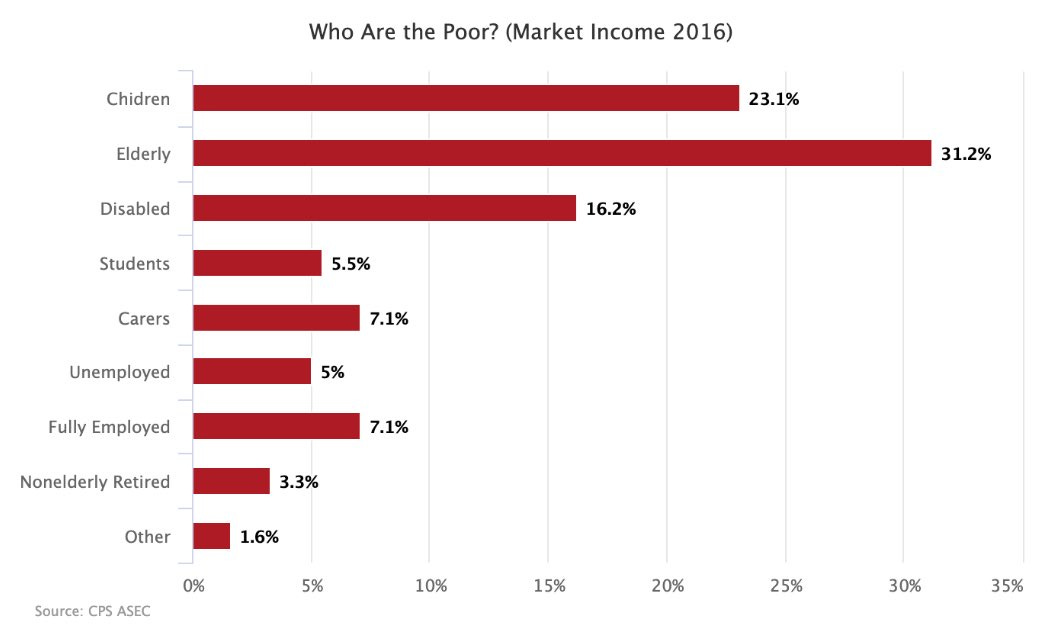Pre-transfers, the Child Poverty Rate is 100%
Transfers, households, and self sufficiency
The welfare state is back in the discourse again with Kelsey Piper and Matt Bruenig sparring over the usefulness of cash transfers. My sympathies are with the Bruenig side of the argument, however the following comment from Piper caught my attention:
the share of people whose pre-transfer incomes would put them in absolute poverty hasn't changed much. should we be bothered by that? should we have expected anti-poverty policy to address it? I guess I kind of think 'yes'?
As followed up by Medlock, building on a long line of argument from Bruenig and David Sligar, the problem with this argument is that we have good reasons for not expecting the welfare state to reduce pre-transfer poverty. The bulk of those in pre-transfer poverty we would not expect to work, including children, elderly, disabled people and carers. The insistence a welfare state promote self-sufficiency is thus misplaced, as the programs exist to support those outside the labour market.
To ask a more basic question however, if children do not work, and they don’t derive capital income, how are they ever not in poverty? The obvious answer is that they are supported by working adults, usually their parents. Effectively these workers transfer part of their purchasing power, in order to provide for them. The reason they may appear self-sufficient is that the household is considered a single production unit, from which pre-transfer incomes can be assessed.
This is a choice, we could just as well attribute workers’ incomes on an individual basis, reporting non-workers as receiving 0 pre-tax incomes.1 Under this arrangement huge swathes of the population would be reported as below the poverty line, before they receive transfers from family, friends, and other support networks.
The question is then not whether or not we want transfers, they are inevitable, but rather who should be responsible for the transfers. As Esping-Andersen writes in his The Three Worlds of Welfare Capitalism, a social conservative may prefer these transfers occur at the household, or family level, so as to encourage reliance on traditional family structures and patriarchal values. I disagree with this approach, building familial relationships on economic dependency seems to me to allow for many kinds of toxicity, and a poor foundation for loving families. It is however at least a coherent argument for encouraging intra-household transfers, in a way self-sufficiency approaches are not.
If however, your goal is effective poverty reduction and improving individual autonomy, you can’t do much better than a universalist welfare state. It’s transfers all the way down, so we might as well pick the one that works.
Assuming sufficient granularity in the data of course


